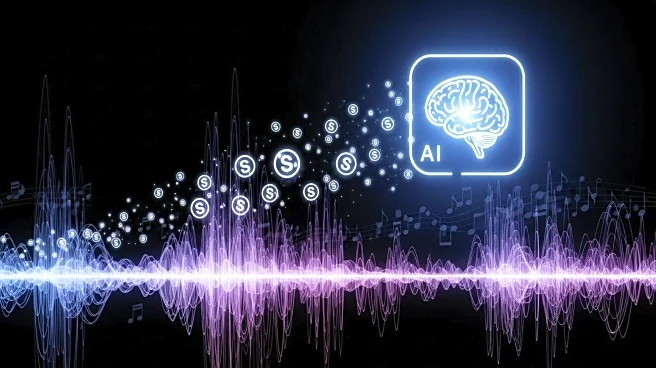What is the story about?
What's Happening?
Spotify has removed 75 million spam tracks from its platform over the past year, as AI tools have increased the ability to create fake music. The streaming service is addressing the rise of AI-generated spam, which poses challenges for both the platform and legitimate artists. These spam tracks, which rival the scale of Spotify's actual catalog, generate royalties for scammers and dilute payments to real artists. Spotify is implementing a music spam filter to identify and tag uploaders, preventing these tracks from being recommended by its algorithm. The company is also strengthening rules on vocal deepfakes and supporting a new industry standard for disclosing AI use in music creation.
Why It's Important?
The removal of AI-generated spam tracks by Spotify highlights the growing impact of AI on the music industry. As AI tools become more sophisticated, they enable the creation of large volumes of music, leading to potential exploitation through impersonations and spam content. This situation affects legitimate artists, as royalties generated from AI tracks can dilute payments to human creators. Spotify's actions are crucial in maintaining trust and integrity within the platform, ensuring that artists retain control over their creative processes. The company's efforts to label AI-generated music and enforce stricter rules on vocal deepfakes are steps towards addressing these issues and supporting artists' rights.
What's Next?
Spotify plans to roll out a music spam filter to identify and tag uploaders of AI-generated content, preventing these tracks from being recommended by its algorithm. The company is also supporting a new industry standard for disclosing the use of AI in music creation, developed by DDEX. While artists' use of this standard will be voluntary, it aims to strengthen trust across the platform. Spotify's continued efforts to tackle AI-generated spam and impersonations will likely influence other streaming services to adopt similar measures, shaping the future landscape of digital music distribution.
















